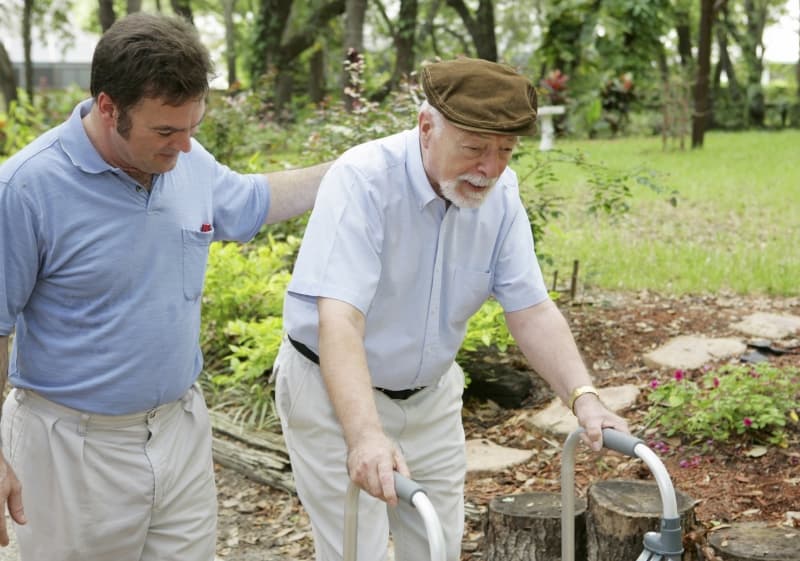
Dementia can be incredibly debilitating, affecting the sufferer's thinking, memory and ability to carry out everyday activities. Thankfully, there are a range of natural treatments that may help prevent and manage dementia. Read on to find out more.
What is Dementia?
Contrary to common belief, dementia is not a disease itself, but rather a large group of illnesses that affect a person's cognitive abilities. While it often affects people over the age of 80, it has also been reported in people in their 40s and 50s. What this means is that not all seniors develop dementia.
Alzheimer's disease is the most common type of dementia, making up around 50 to 70 per cent of cases. Other types of dementia include Lewy body dementia, vascular dementia, frontotemporal dementia and mixed dementia, but what they all have in common is the impact on brain function.
Huntington's disease, Parkinson's disease, Down syndrome, brain tumours, haemorrhages and multiple sclerosis are all known as potential causes of, or links to, dementia.
According to Aged Care Australia, there are around 270,000 Australians living with dementia. It's believed this figure will jump to 730,000 by 2050, given our ageing population.
What Causes Dementia?
While you may think dementia is largely inherited, in most cases a person with dementia doesn't have a family history of the disease. Aged Care Australia reported that around a third of people with Alzheimer's disease have inherited it.
Other main risk factors for developing dementia include age; one's risk of dementia increases as one ages. Certain genetic conditions are also present in many people with dementia.
While there is no cure for the condition at this time, there are several therapies that can help in the management or prevention of dementia.
What Natural Therapies are Used for Dementia?
There are several things you, or your family members, can do to either delay the onset of dementia or maintain a sound quality of life. Here are a few therapies that may assist in boosting brain health:
Brain training
Research suggests that people who complete a high level of education are at a lower risk of developing dementia. Mental activity has been found to stimulate brain growth, which means that people who study expand their brain, warding off the effects of dementia. Puzzles, word games and Sudoku are a few brain-stimulating activities you might like to try. Additionally, listening to soothing music and keeping a journal of your thoughts and feelings can also enhance cognitive function.
Nutrition
Numerous studies have been conducted to explore the link between nutrition and the risk of dementia. Fish has been found to be particularly beneficial, due to its high omega-3 fatty acid properties. Vitamin B helps promote the growth of new brain cells and delay or prevent dementia symptoms. Eating plenty of fruit and vegetables is also good for your brain health, but too much saturated fats and trans fatty acids have been found to increase a person's chances of developing symptoms of dementia. In addition, people who eat more than 7g of salt per day are more likely to develop dementia because the sodium in salt results in high blood pressure, which puts stress on the heart and blood vessels.
Herbal medicines
Several natural herbs have been found to help with preventing and managing dementia. Ginkgo biloba has been the subject of numerous studies, with results showing that it offers substantial health benefits for cognition, mood and emotion. Ginkgo doesn't mix well with some medications, so chat to your health professional before taking it or having surgery. Sage and Melissa officinalis (lemon balm) have many beneficial effects as well, including boosting memory and cognitive functions. Lastly, Coenzyme Q10 (CoQ10) may help slow the development of Alzheimer's. Qualified herbalists with a strong background in Chinese medicine can provide you with a suitable herbal remedy.
Physical activity

Staying physically active is vital for improving cognitive performance and reducing the progression of dementia. It's been suggested (though not proven) that exercise increases the flow of blood to the brain and may even prevent the death of brain cells. The first exercise recommended is Tai chi, which has been shown to improve balance and coordination. Yoga is another exercise that may benefit patients with dementia. Not only does it make the body more flexible and strong, but it also calms the mind and reduces stress. This makes it easier to cope with the dementia symptoms as well as have a better quality of life overall.
In addition to physical exercise, engaging in meditation and mindfulness exercises has also been shown to improve cognitive function. Exercises like these increase awareness of what is going on inside one's mind so that information can be processed more efficiently.
Source: PatientsEngage
Massage
Some studies have found a link between massage and reduced anxiety in people with dementia. This natural healing modality is an effective way to address cognitive symptoms, and it may also help alleviate behavioral symptoms associated with dementia such as wandering and pacing aimlessly. Massage therapies have been used to help dementia patients relax, hence reducing stress and elevating mood, which leads to a better immune system. In addition to slowing cognitive dysfunctions, receiving a massage from a loved one or a trained massage therapist helps the patient feel connected with those around them.
Even though dementia is challenging, patients and their families can cope with it if they know what steps to take. Considering these natural therapies in the treatment of dementia will spare you the adverse effects of conventional medications. In addition, regardless of whether it is onset or advanced dementia, these effective treatments will provide neuroprotective effects.
Originally published on Oct 18, 2012








